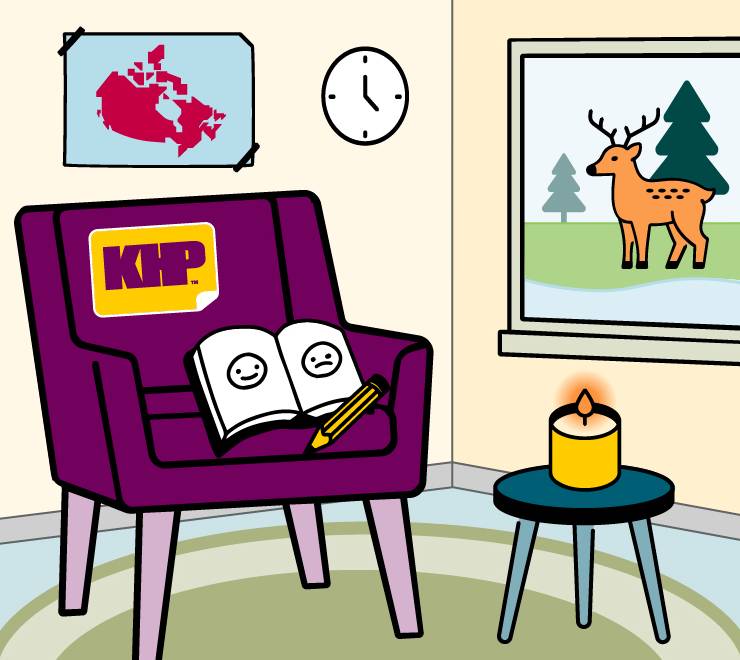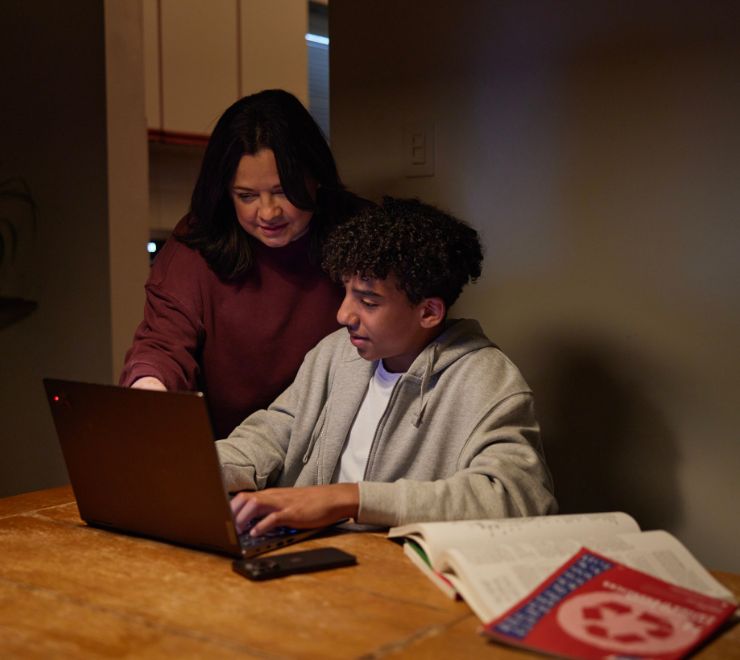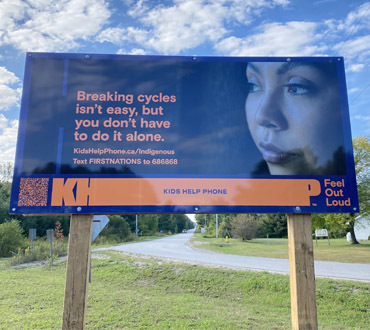Learn how to cope if someone you know has a gambling problem.
Does my parent have a gambling problem?
If your parent or guardian has a gambling problem, it may affect you and your family in different ways. You may notice changes like:
- more arguing in your house
- very stressed, irritable or upset family members
- your family is struggling with money
- seeing a lot less of your parent who is gambling
These changes can be very tough and they can bring up a lot of different emotions. As hard as it is, try and keep in mind that these feelings are normal, like:
- loneliness
- stress
- worry
- guilt
- confusion
- anger
- resentment
How do I talk to my parent about their gambling problem?
People with gambling problems can recover and lead healthy lives with the right support and treatment. But as with any addiction, people need to be ready to make a change.
Remember, there is nothing you can say or do to make your parent stop gambling. Just as you didn’t cause your parent’s addiction, you also can’t make it go away. If you feel comfortable and safe, here are some tips on how you can express your concerns:
- Use examples: discuss your concerns by using specific examples of things you’ve noticed.
- Don’t judge: tell your parent that you’re worried about them, but try not to judge or accuse them.
- Say how it’s affecting you: give your parent examples of how their gambling is affecting you and your family.
If you don’t feel comfortable approaching your parent, try someone else in your family. They may be able to talk to your parent for you.
If your parent is getting help
Try to be supportive and encouraging if your parent is getting help with a gambling problem. Let them know you’re proud of the changes they’re making and how those changes are affecting you for the better. They will need and appreciate the support. There may be setbacks along the way, but remember that recovery from any problem is difficult. It may take multiple tries before someone can change their behaviour.
While they’re getting help, the best thing you can do is take care of your own feelings and safety:
- Be kind to yourself: doing things you know you enjoy, like listening to your favourite music or playing a sport you like, can improve your mood and make it easier to handle the stress of your situation.
- Get support: having a parent with a gambling problem can be difficult, especially if you feel like you have to handle it alone. You’ll feel less lonely — and have an easier time at home — if you surround yourself with friends who understand and support you.
- Talk to someone you trust: someone you trust, like another relative, can help you figure out ways to get support for both you and your family. It can also help just to vent about your feelings. You can always call Kids Help Phone at 1-800-668-6868 — our counsellors know a lot about gambling problems and can help you think through your situation.
No matter what, you deserve love, care and respect. If you feel like you’re being neglected, or that your safety is at risk because of a parent’s gambling, please call Kids Help Phone at 1-800-668-6868 — we’ll help you figure out how to protect your health and safety.
Does my friend have a gambling problem?
Thinking that your friend may be struggling with a gambling problem can be tough. Your friend may have a gambling problem if they are:
- preoccupied with gambling or talking about gambling a lot
- describing gambling as an easy way to make money
- lying, stealing or cheating in order to gamble
- borrowing money from friends and family and not paying it back
- selling their things or other people’s things
- incurring mysterious debts
- not at school, work or home without explaining why
- distracted, sad, nervous, defensive or irritable
- losing interest in things they used to enjoy or not wanting to see friends anymore
- not doing as well in school as they used to
Keep in mind that some of these signs can also indicate other problems like depression.
Talking to your friend about a gambling problem
If it’s safe, it can be a good idea to talk to your friend about what you’ve noticed. Here are some tips on how to have that conversation:
- Do research: inform yourself about the signs of a gambling problem.
- Find the right location: find somewhere quiet and free from distractions.
- Give examples: use specific examples of behaviour that you think is troubling. You could say, “Last week, you spent your whole allowance on your sports pool.”
- Don’t accuse them: avoid accusing or judging your friend. Focus instead on how you feel about their gambling by saying something like, “I’m concerned about the amount of time you spend gambling.”
- Be specific: tell them how their gambling is affecting your friendship and try saying, “When you break plans so you can gamble, I feel really hurt.”
- Offer help: ask your friend how you can be there for them. You can offer to call a counselling service with them or accompany them to their first appointment. If they seem open, you can recommend they reach out to Kids Help Phone.
- Don’t force it: if your friend doesn’t want help, try not to push the issue. Let them know you’re there for them if they want to talk about it in the future.
Remember, to recover from a gambling problem, your friend will have to decide for themselves that they need and want help.
My friend is ready for help
If your friend is ready for help, your support will be important. You can support them by acknowledging any positive steps they’ve made as they work through their gambling problem. Still, dealing with a gambling problem is a difficult process and it may take several tries before your friend is able to stop.













